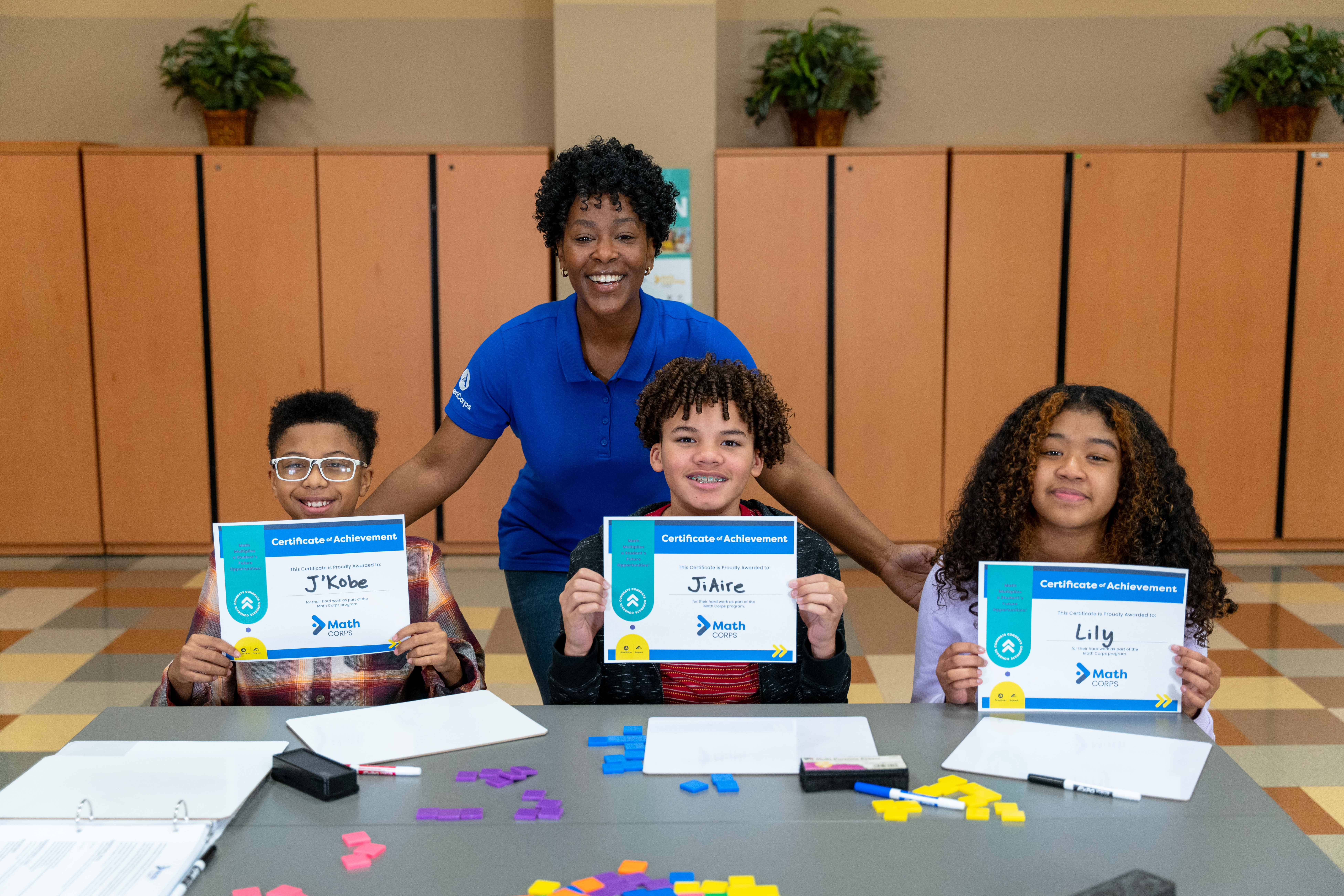A recent study featured in Mathematica, and funded by the Bill and Melinda Gates Foundation, confirmed one thing we already knew about Math Corps: it improves students’ math skills. It also found something new. Unlike other tutoring services, students in Math Corps gain confidence and feel a sense of belonging, thanks to their tutors!
The Study
The Bill and Melinda Gates Foundation has funded six studies on math tutoring programs. Their goal is to see how tutoring can improve the school experience and academic performance of Black, Latino, and/or students experiencing poverty.
During the 20-21 school year, researchers evaluated Math Corps in Minnesota and Georgia and focused on schools with predominantly Black students in grades 4-8. Like other research before it, this study found that Math Corps helps students make incredible progress! But it also captured something new — that the relationships between students and their Math Tutors offer some additional benefits beyond improved math skills.
Math Corps Improves Test Scores
Compared to their peers who did not participate in Math Corps tutoring, students in Math Corps improved their Star math assessment scores an average of 13 points or about a seven percentile point advantage.

Math Corps Builds Tutor-Student Relationships
In addition to improving their test scores, 94% of students in Math Corps also reported that they had a high-quality relationship with their tutor. Tutors treated students with respect, helped them achieve their goals, and challenged them to do their best.
A large majority of students also felt a sense of belonging in Math Corps that was strongly related to their relationship with their tutor. Whether it was interacting with each other or feeling supported by their tutor, 94% of students felt welcomed in their tutoring sessions.
Math Anxiety
Have you ever heard someone say, “I’m just not a math person”? Often these beliefs start early and persist. In fact, many people have worries and fear about performing math. A 2018 study found that 93% of adult Americans report having math-related anxiety and researchers have documented it in students as young as 5.
If someone experiences math anxiety, they may experience emotional, cognitive, and/or physical symptoms, like feeling tense or nauseous and lightheaded. Math anxiety can be debilitating and impacts not only learning but also motivation and academic performance. All too often, early anxiety snowballs, leading to math difficulties and avoidance that continues to get worse as children get older.
Increasing Math Confidence
Experts note that math anxiety isn’t related to overall intelligence. Many students simply need extra practice and skill building to build their math confidence. Mathematica’s study found that 72.6% of surveyed Math Corps students ranked their confidence as high or very high at the end of the year. That is about a 60% increase from when they were surveyed at the beginning of the year!

With math proficiency linked to high school graduation, college enrollment, and even lifetime earnings, it’s essential we help all students build strong skills. The need is great and growing. During 2022, the Nation’s Report Card reported that math scores declined for the first time ever and were the lowest in 17 years. Math Corps offers a proven solution, and as we work to support more students nationwide, more tutors are needed.
If you or someone you know are ready to help students build math confidence and strong skills, visit Join.ReadingandMath.org and apply now to begin in August!

